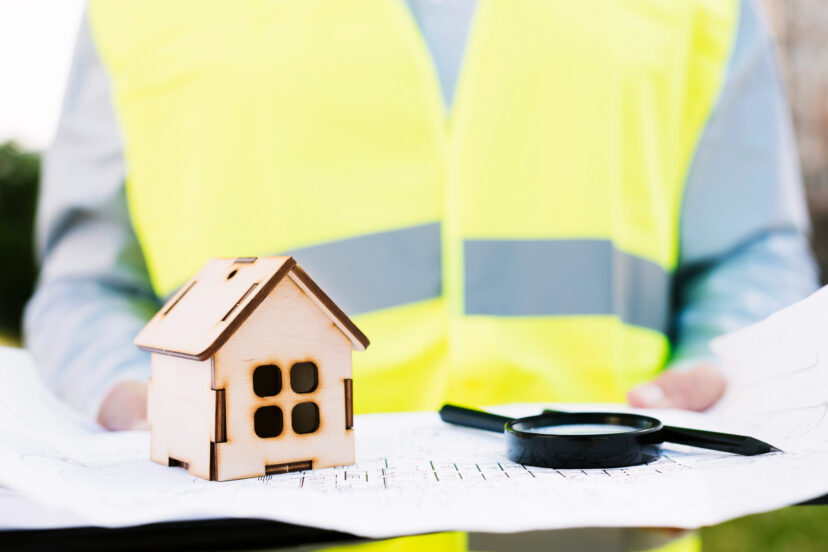RTO Property Inspections
Are you considering a rent-to-own (RTO) agreement as your path to homeownership? While these arrangements offer an attractive alternative to traditional home buying, there’s one critical step you can’t afford to skip: the property inspection. In this comprehensive guide, we’ll dive deep into why RTO property inspections are absolutely essential for protecting your investment and ensuring a smooth transition from renter to homeowner.
Tap Search… to find the perfect property that fits your needs and budget.
Understanding the Value of RTO Property Inspections
Imagine spending years paying towards your dream home, only to discover major structural issues just before the purchase. This scenario is exactly what RTO property inspections help you avoid. Whether you’re a first-time homebuyer or exploring alternative purchasing options, understanding the importance of these inspections can save you from costly surprises down the road.
Why RTO Property Inspections Matter More Than Ever
In today’s real estate market, where home prices continue to climb and buyers seek creative purchasing solutions, rent-to-own agreements have gained significant popularity. However, these arrangements come with unique considerations that make property inspections even more crucial than in traditional home purchases.
Let’s explore the key benefits that make RTO property inspections an indispensable part of your homebuying journey:
1. Comprehensive Property Condition Assessment
When you’re investing in a rent-to-own property, you’re not just renting – you’re laying the groundwork for future ownership. A thorough property inspection provides:
- Detailed evaluation of the property’s current condition
- Identification of existing and potential problems
- Professional assessment of all major systems and structures
- Documentation of any safety concerns or code violations
2. Enhanced Transparency in Your Agreement
RTO property inspections create a foundation of trust between you and the property owner by:
- Establishing a clear baseline of the property’s condition
- Documenting existing issues before you move in
- Preventing future disputes about pre-existing conditions
- Creating a shared understanding of the property’s value
3. Strategic Negotiation Power
Knowledge truly is power when it comes to RTO agreements. A professional inspection report can:
- Provide leverage for price negotiations
- Help establish fair terms for repairs and maintenance
- Support requests for specific improvements before purchase
- Justify adjustments to the final purchase price
Essential Types of RTO Property Inspections
To ensure you’re getting a complete picture of your future home, several types of inspections should be considered. Each plays a vital role in protecting your investment.
General Home Inspection: Your First Line of Defense
A comprehensive general home inspection is the cornerstone of your due diligence process. This inspection covers:
- Structural integrity assessment
- Electrical system evaluation
- Plumbing system analysis
- HVAC functionality testing
- Interior and exterior components review
- Basic safety and code compliance checks
Beyond the Basics: Specialized Inspections
Depending on your property’s characteristics and location, you might need additional specialized inspections:
Pest Inspection
Don’t let unwanted guests compromise your investment. A thorough pest inspection will:
- Identify current infestations
- Detect signs of previous pest problems
- Assess vulnerability to future infestations
- Recommend preventive measures
Environmental Testing
Protecting your family’s health starts with understanding potential environmental hazards:
- Radon testing
- Lead paint detection
- Mold assessment
- Asbestos identification
- Air quality analysis
Structural Assessment
For older homes or properties with visible concerns, a dedicated structural inspection provides:
- Foundation evaluation
- Load-bearing wall assessment
- Beam and joist analysis
- Settlement pattern identification
Navigating the RTO Property Inspection Process
Success in your rent-to-own journey requires a well-organized approach to property inspections. Here’s your step-by-step guide to managing this crucial process effectively.
Step 1: Timing Is Everything
The ideal window for conducting RTO property inspections is within the first 30 days after signing your agreement. This timeline:
- Allows for thorough assessment before fully committing
- Provides time for negotiating necessary repairs
- Enables proper planning for future maintenance
- Helps establish clear expectations early in the agreement
Step 2: Selecting Your Inspection Team
Choosing the right professionals for your inspections is crucial. Look for:
- Licensed and certified inspectors
- Experience with rent-to-own properties
- Strong reputation in your local market
- Clear communication skills
- Detailed reporting practices
Step 3: During the Inspection
Make the most of your inspection day by:
- Being present during the inspection
- Taking your own notes and photos
- Asking questions about concerning issues
- Learning about maintenance requirements
- Understanding the property’s systems
Step 4: Report Review and Action Planning
Once you receive your inspection reports:
- Review findings thoroughly
- Prioritize issues based on severity and cost
- Develop a negotiation strategy
- Create a maintenance plan
- Document all agreements in writing
Making Informed Decisions with RTO Property Inspections
Your inspection results should inform your next steps in the rent-to-own process. Consider these key factors:
Financial Planning
Use inspection findings to:
- Budget for necessary repairs
- Plan for future maintenance costs
- Negotiate repair responsibilities
- Adjust your purchase timeline if needed
Legal Considerations
Protect your interests by:
- Documenting all inspection findings
- Getting agreements in writing
- Understanding local regulations
- Consulting with legal professionals when needed
Long-term Value Assessment
Consider how inspection results might affect:
- Future property value
- Insurance costs
- Maintenance expenses
- Overall investment potential
Best Practices for RTO Property Inspections
To maximize the value of your inspections:
Documentation Is Key
- Keep detailed records of all inspections
- Take photos and videos
- Maintain copies of all reports
- Save all communication about repairs
Communication Matters
- Stay in regular contact with the property owner
- Document all agreements about repairs
- Keep records of maintenance performed
- Address concerns promptly
Professional Partnerships
- Build relationships with reliable contractors
- Maintain contact with your inspector
- Consider regular maintenance inspections
- Keep your real estate professional involved
The Path to Successful Homeownership
RTO property inspections are more than just a checkbox in your journey to homeownership – they’re your roadmap to a successful investment. By understanding and implementing thorough inspection practices, you’re protecting your financial future and ensuring a smooth transition from renter to homeowner.
Remember, knowledge is power in any real estate transaction, and nowhere is this more true than in rent-to-own agreements. Take the time to conduct proper inspections, understand the results, and make informed decisions based on professional findings.
Whether you’re just starting to explore rent-to-own options or you’re ready to schedule your inspections, remember that thorough RTO property inspections are your best defense against unexpected issues and your strongest tool for negotiating favorable terms.
Ready to take the next step in your rent-to-own journey? Start by finding a qualified inspector in your area and make your dream of homeownership a reality built on a solid foundation of knowledge and due diligence.





